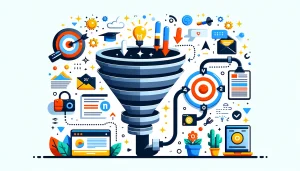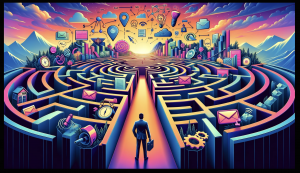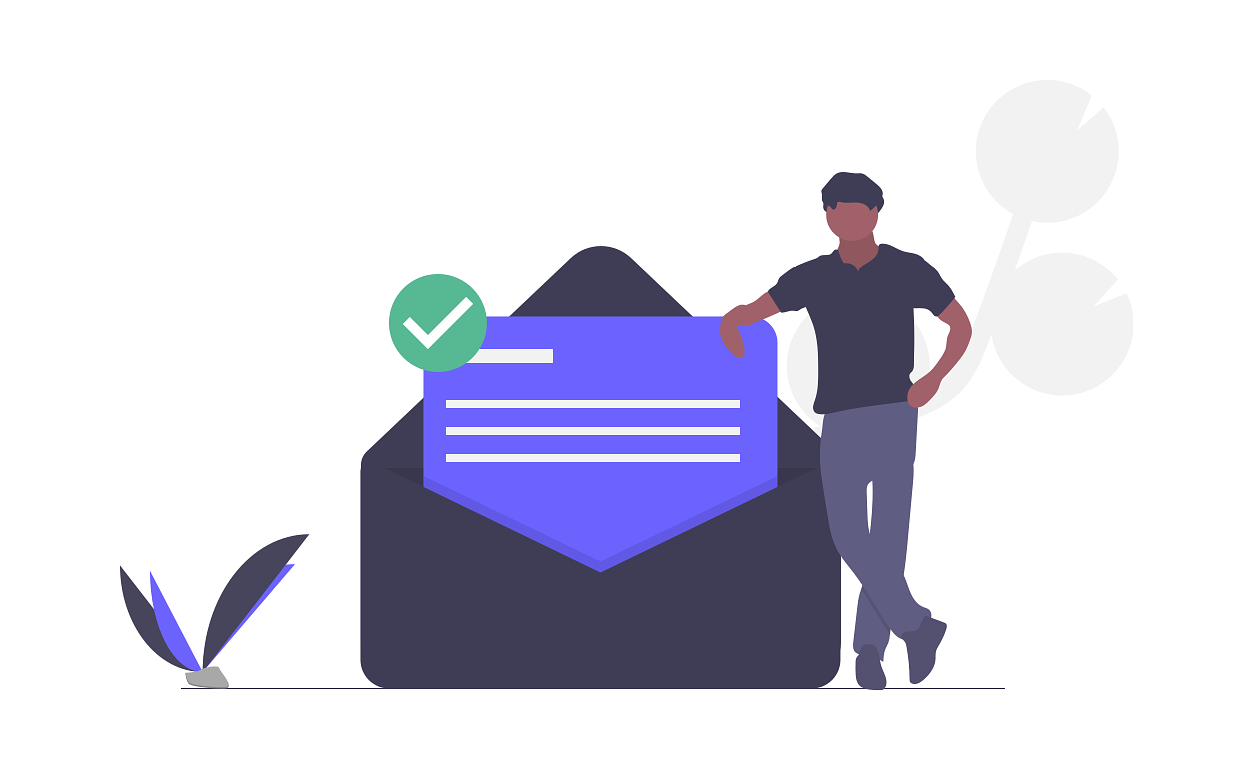Engage and Convert Your Audience
In today’s digital landscape, content marketing stands as a pivotal component of any successful online marketing strategy, particularly for startups looking to carve out their niche in a crowded marketplace. It’s not just about bombarding your audience with content; it’s about crafting meaningful, engaging, and valuable content that speaks directly to the different stages of the user journey through the marketing funnel. This journey, from awareness to consideration, and finally to the decision stage, requires a nuanced approach to content creation and distribution. Let’s dive into how startups can master content marketing to engage their audience effectively and convert them into loyal customers.
Understanding the Marketing Funnel
Before delving into content strategies, it’s crucial to understand the marketing funnel, which consists of three main stages:
- Awareness: The potential customer becomes aware of a need or problem and encounters your solution.
- Consideration: The potential customer evaluates different solutions to their problem, including your product or service.
- Decision: The potential customer decides to purchase (or not to purchase) your solution.
Each stage requires a tailored content approach to guide the potential customer through the funnel toward making a purchase.
Stage 1: Crafting Content for Awareness
At the top of the funnel, your goal is to attract and inform. Your audience may not yet fully understand their problem or know that a solution exists. Content at this stage should be educational and designed to establish your brand as a thought leader in your industry.
Types of Content for Awareness:
- Blog Posts: Write informative articles that address common problems or questions your target audience might have. SEO plays a crucial role here, as optimizing your content for relevant keywords will help your target audience find you through search engines.
- Infographics and Videos: Visual content can help explain complex topics simply and engagingly, making it easier for your audience to digest the information.
- Social Media Content: Share tips, industry news, and other relevant information that positions your brand as knowledgeable and helpful.
Stage 2: Engaging Content for Consideration
As potential customers move down the funnel, they start looking for solutions to their problems. Here, the content should showcase your product or service as a viable solution, explaining how it works and why it’s better than the competition.
Types of Content for Consideration:
- Case Studies and Testimonials: Sharing success stories from satisfied customers can help build trust and show potential customers how your product or service has solved similar problems for others.
- Product Demos and How-to Guides: Demonstrative content can help potential customers understand how your product or service fits into their lives or businesses.
- Webinars and eBooks: These can provide deeper insights into your industry or product features, offering value that can position your brand as the preferred solution.
Stage 3: Decision-Making Content
At the bottom of the funnel, your content needs to give potential customers the final nudge to make a purchase. At this stage, the focus is on conversion-oriented content that addresses any last-minute concerns or questions.
Types of Content for Decision:
- FAQs and Detailed Product Guides: Providing detailed answers to common questions can alleviate any lingering doubts a potential customer might have.
- Special Offers and Trials: Incentives like discounts, free trials, or exclusive access can encourage potential customers to take the leap and make a purchase.
- Comparison Sheets: Content that compares your product or service with competitors (in a fair and honest way) can help reinforce the decision to choose your brand.
Tailoring Content Across All Stages
Mastering content marketing requires not just creating content for each stage of the funnel but also ensuring a seamless transition between stages. Here are some strategies to ensure your content effectively engages and converts:
- Understand Your Audience: Use data analytics and customer feedback to gain insights into your audience’s preferences, pain points, and behaviors. This will help you create more targeted and relevant content.
- Create a Content Calendar: Planning your content in advance ensures a consistent flow of material across all stages of the funnel, keeping your audience engaged and moving smoothly towards a purchase.
- Leverage Multiple Channels: Distribute your content across various channels (e.g., your website, social media, email newsletters) to reach your audience where they are most active.
- Measure and Optimize: Use analytics tools to track the performance of your content at each funnel stage. Look at metrics like engagement rates, conversion rates, and ROI to understand what’s working and what’s not. Use these insights to refine your strategy over time.
Conclusion
Content marketing is a powerful tool for startups looking to engage their audience and drive conversions. By understanding the marketing funnel and tailoring content to each stage, startups can effectively guide potential customers from initial awareness through to the final purchase decision. Remember, the key to successful content marketing is relevance, quality, and consistency. By focusing on providing value at every stage of the customer journey, startups can build trust, establish authority, and ultimately, convert their audience into loyal customers.





